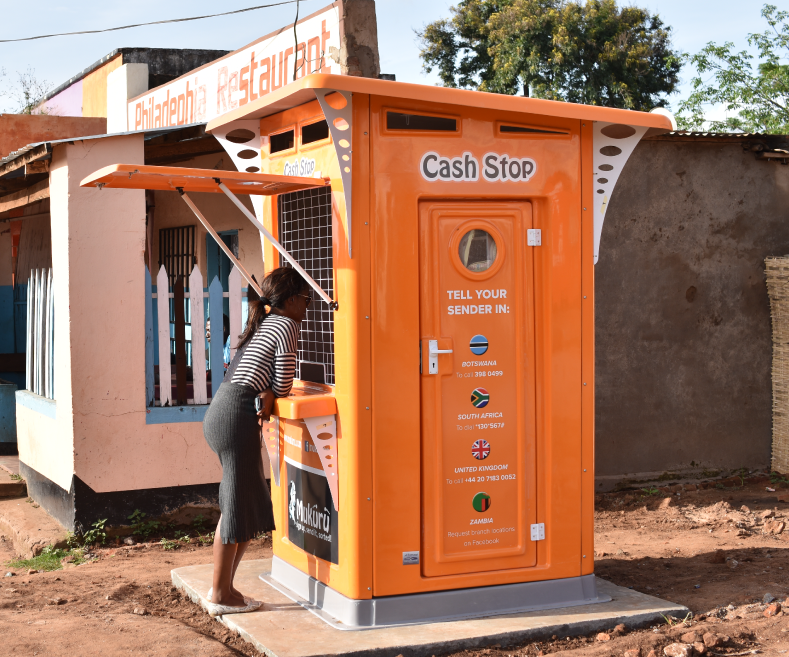ImpactAlpha, August 20 – U.N. Deputy Secretary-General Amina Mohammed summed up COVID-19 like this: “We are facing a human crisis unlike any we have experienced.”
That crisis is exacerbated for many Africans because of the prevalence of other conditions: malnutrition, relatively high rates of tuberculosis and HIV, poor sanitation—all of which elevate the risk of exposure to the coronavirus. Those same factors also increase the likelihood that Africans with COVID-19 will need critical medical attention.
In response, Africa has hurried to adopt and adapt anti-virus safety measures to its unique circumstances. But those measures come at a high economic price. Disruptions to economic productivity, reduced incomes, and job loss have now put a number of African communities at risk of food insecurity. A report by the African Union estimates that 20 million informal and formal jobs in Africa may be lost “if the situation lasts.” Africans working in the informal sector, particularly migrant workers, or families who rely on remittance incomes, will be most negatively affected. Indeed, up to 65% of Africans rely on informal jobs, entrepreneurship or shift-based work to feed their families, often with limited or non-existent savings.
Governments and the private sector are racing to find an effective solution to alleviate the risk of food insecurity in impoverished communities. In South Africa, for example, citizens have options for COVID relief in the form of grants and food parcels from both the public and private sectors. But many people in need are being left behind. South Africa’s relief schemes are unavailable to workers who can’t provide proof of employment and citizenship. Similarly, those in hard-to-reach rural areas are less likely to receive critical relief packages.
This is where Africa’s fintech companies can make a positive and lasting impact. Companies like Mukuru, Hello Paisa, and Mama Money are in a unique position to provide safe and cost-effective forms of payment and money transfers as an alternative to cash transactions. Indeed, Mukuru, a remittance provider in Southern Africa, is reporting an increase in remittance transactions on its platform since South Africa went into lockdown in late March. That’s in part because migrant workers who otherwise physically transported cash to friends and family members were forced to convert to digital channels quickly.
Fintechs can also enable small business transactions through secure payment online channels.
Previously, fintech companies faced barriers to trial and acceptance, with customers often preferring cash-based transactions. But the lack of viable money transfer alternatives amid COVID-19 lockdowns and encouragement from governments to use digital payment options are catalyzing the digitization of payments and remittances.
Crisis origins
South Africa-based Mukuru is just one example of how fintechs are responding directly to the pandemic’s impact. The company was founded in 2006 to enable Zimbabweans living abroad to transfer fuel vouchers and U.S. dollars home during a period of extreme hyperinflation in Zimbabwe. It has since evolved into a leading remittance provider in Southern Africa. Senders and recipients can use the fintech’s multi-lingual call center and wide network of local banks, retail outlets and mobile money partners to send and receive money safely and efficiently. It takes the average Mukuru recipient less than two minutes to collect their remittances.
During the recently lifted “hard lockdown” in South Africa, Mukuru’s network of booths and partners enabled customers to send money home at a time when only essential services were permitted to operate. Mukuru experienced a material increase in its customer base during the lockdown, as closed borders necessitated digital remittances.
This datapoint is good news for financial inclusion, because it is expected that once customers are educated on digital financial services, their access to and adoption of other financial products is likely to increase. Furthermore, with larger customer bases, the cost of financial products can be brought down.
Fintech advantages
There are other advantages to fintech services that can help alleviate economic pressures and risks to vulnerable populations in a crisis like COVID-19. Companies like Mukuru have the potential to assist donors and aid organizations that have funds to disburse, but lack the data and distribution networks to efficiently and effectively provide targeted relief to affected households. Indeed, Mukuru has recently expanded its platform’s services to enable donors to action “bulk payments” into the accounts of identified vulnerable groups, giving families a source of temporary income to purchase food and medicine during the pandemic.
Digital financial services also come with the added benefit of accommodating social distancing norms. This is a significant differentiator to traditional brick-and-mortar financial services, because it allows users to abide by the World Health Organization’s social distancing guidelines, decreasing the risk of COVID-19 transmission, and reducing structural barriers to access.
Another value of fintech services is that they have vast databases of transactional information on both the sending and receiving side of diaspora remittances; donors can tap into this information to target specific groups for relief, tailoring outreach by geography, gender, age, income, or by more nuanced demographics, such as woman-headed households. For donors, fintech partnerships could also reduce friction in reporting and auditing of aid distribution due to enhanced traceability and data recording processes.
There has never been a more pivotal time to encourage collaboration across the public, private and nonprofit sectors. Collaborative fintech is needed to respond to the current crisis and improve financial relief and inclusion, and small business survival and competitiveness. If done in the right way, fintech could also become the launching pad that accelerates Africa into the fourth industrial revolution and results in a more resilient continent.
CrossBoundary assisted Mukuru under USAID’s INVEST program through a market study on product innovation to accelerate financial inclusion in the region. This support was funded by USAID’s Southern and East Africa Regional Missions in support of the US Government’s Prosper Africa initiative.











